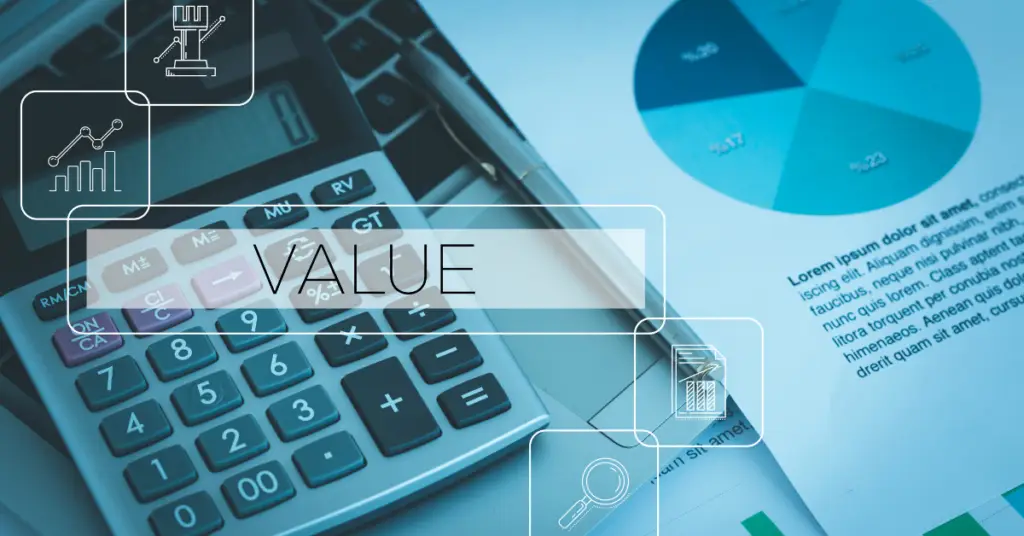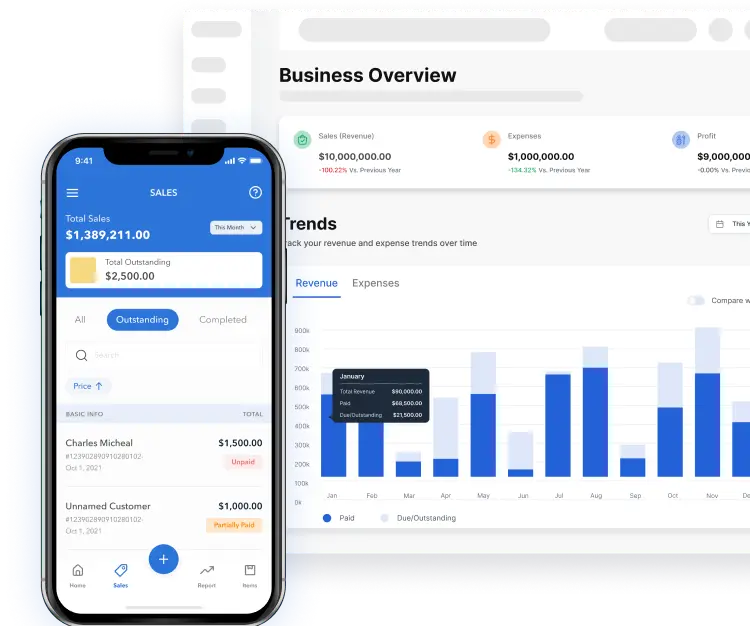When it comes to assessing the worth of assets, businesses need to ensure their valuations are accurate. One of the most commonly used metrics to determine an asset’s value is fair market value. Whether you’re buying, selling, or simply managing assets on the books, knowing the fair market value (FMV) is critical to maintaining financial clarity.
In this blog, we will dive into the concept of fair market value, how it can be calculated, and why understanding FMV is essential for businesses of all sizes. We’ll be discussing:
What Is Fair Market Value?

Fair market value (FMV) refers to the price an asset would fetch in an open and competitive market where both buyer and seller have sufficient knowledge of the asset and neither is under pressure to act. Unlike market value, which can be influenced by factors like urgency, fair market value assumes that both parties act in their best interests without any external pressure, resulting in a transaction price that reflects the asset’s true worth.
Elements of fair market value include:
- Free and open market: The transaction must take place in a market that is open and competitive.
- Knowledgeable participants: Both the buyer and seller have access to relevant information regarding the asset.
- No compulsion to act: Neither party is compelled to buy or sell under financial duress.
Businesses commonly use FMV to determine the value of assets like real estate, vehicles, and entire companies. Legal, tax, and accounting contexts frequently encounter this term, particularly when establishing taxable values, setting insurance premiums, and determining the worth of estates.
How to Calculate Fair Market Value
Unlike fixed formulas used in accounting or finance, there is no universal calculation for FMV. However, several methodologies can be applied to estimate an asset’s fair market value based on available data. Let’s explore some of the most commonly used methods:
1. Cost Minus Economic Depreciation
The Cost Minus Economic Depreciation method is a simple way to calculate fair market value, especially for physical assets that experience depreciation. This method involves subtracting the asset’s economic depreciation from its original cost to estimate its current value.
For instance, let’s consider a delivery vehicle. If you purchased the vehicle for $30,000 five years ago, the economic depreciation would represent the wear and tear that has occurred since then. While this method works well for assets like cars and machinery, it is important to note that economic depreciation varies from standard depreciation used in tax reporting.
This method is helpful when:
- The asset is physical and depreciates over time.
- You want to understand the real-world impact of usage on asset value.
Example: A machine purchased for $50,000 might depreciate by $5,000 per year due to wear and tear. After five years, its FMV would be calculated as $50,000 – ($5,000 x 5) = $25,000.
2. Comparable Sales

The Comparable Sales method is particularly useful for valuing real estate and similar assets. It involves finding comparable items that have recently sold in a competitive market. By analyzing the sale prices of similar assets, you can determine an average and apply it to your asset.
For this method to be effective, the comparable assets must be similar in nature, quality, and location. It is important to adjust the sale prices based on any differences between the assets, such as variations in condition or additional features.
This method is useful when:
- There are many similar assets available in the market.
- The asset’s value is tied to its market environment, such as real estate.
Example: If three houses similar to yours have sold recently for $400,000, $420,000, and $415,000, you can estimate your home’s FMV to be around $411,666.
3. Replacement Cost
The Replacement Cost method involves calculating how much it would cost to replace the asset with a similar one at current market prices. This method is most applicable to assets that can be easily replaced, such as equipment, tools, and technology.
While the replacement cost method can be straightforward, it tends to inflate the FMV, as newer versions of assets are often more expensive than older ones. Thus, replacement cost provides a maximum cap on FMV but might not be entirely accurate for older assets.
This method is suitable when:
- The asset can easily be replaced with a newer version.
- You want to establish an upper limit for FMV.
Example: If the current cost of replacing an old piece of equipment is $15,000, its FMV should not exceed this amount, even if the equipment is in good condition.
4. Appraisal
An appraisal is the most accurate way to determine an asset’s fair market value. It involves hiring an expert to evaluate the asset and provide a professional valuation. Appraisers have in-depth knowledge of the market and understand how to account for various factors that affect an asset’s value.
Legal and tax purposes often require appraisals, such as during estate settlements, divorce proceedings, or insurance claims. While accurate, appraisals can be costly and time-consuming, making them less ideal for routine asset valuations.
Appraisals are recommended when:
- A professional, certified opinion is needed for legal or financial purposes.
- You are dealing with unique or highly valuable assets.
Example: A company may hire a professional appraiser to determine the FMV of a rare painting in its art collection for insurance purposes.
Why is Fair Market Value Important?

Fair market value plays a significant role in a variety of business functions, from asset management to tax reporting. Understanding FMV ensures that both buyers and sellers engage in fair and transparent transactions while also offering key benefits in other areas.
1. Buying, Selling, or Disposing of Assets
Understanding the FMV ensures that businesses make informed decisions and avoid overpaying or underselling when acquiring or selling assets. Whether it’s real estate, vehicles, or machinery, knowing the fair market value allows for negotiations that reflect the asset’s true worth in a competitive market.
2. Business Valuation
For companies looking to assess their overall value, fair market value is a key component of business valuations. Investors, buyers, and sellers use FMV as part of the calculation to determine a company’s total worth. Business valuations are critical during mergers, acquisitions, and when raising capital, as they provide potential investors with a clear picture of a company’s financial health.
Related Posts: How to Calculate Inventory Holding Cost. Asset Writedowns: Definition, Benefits, and Example(Opens in a new browser tab)
3. Insurance and Risk Management
Many insurance policies require businesses to declare the FMV of their assets in order to calculate premiums and coverage limits. Accurate FMV assessments help businesses avoid underinsurance or overpaying for insurance policies, ensuring they remain adequately protected in the event of damage or loss.
4. Tax Implications
FMV is often used to establish an asset’s value for tax purposes. When businesses sell assets, the IRS uses the initial purchase FMV and the sale price to calculate gains, losses, and tax liabilities. Accurate FMV records are essential for complying with tax regulations and avoiding penalties.
Conclusion
Fair market value (FMV) is an essential metric for assessing an asset’s true worth in an open, competitive market. Knowing an asset’s FMV provides a strong foundation for financial decision-making, from facilitating transactions to calculating taxes and ensuring proper insurance coverage.
Whether using methods like Cost Minus Economic Depreciation, Comparable Sales, Replacement Cost, or professional appraisals, businesses can accurately estimate their assets’ fair market value. Maintaining clear, up-to-date records of FMV ensures that your company remains financially sound and compliant, while also preparing you for future growth opportunities.
Manage your Inventory and Accounting Processes today with Vencru!
Related Content
- Work Order vs Purchase Order: What’s the Difference?
- How to Calculate Indirect Manufacturing Costs
- How to Compute Days in Inventory
- What is Inventory Shrinkage?
- How to Calculate Direct Labor Cost
- Economic Order Quantity (EOQ)
- What Is Depreciation in Accounting and How Is It Calculated?
- What is Straight Line Depreciation?






